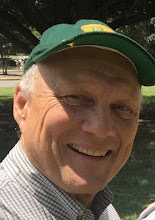Thousands of children growing up in our community are fatherless. Many have experienced the death of their biological fathers, a very common situation in pockets of our population. One coach working in a high crime area of the Upper Ninth Ward was absent for two weeks while on vacation. A boy on the team asked the other coach, “Is Coach Jared dead?” For these young boys who have lost so many men in their lives, a two-week absence provokes such thinking.
The first pastor of the Jerusalem church, James, who is called the brother of Jesus, wrote that “pure religion” was “to visit the fatherless and widows in their affliction” (James 1:27). Scholars think it very likely that Joseph, the husband of Mary, died when Jesus and James were still children. In such a case the offspring may suffer what James, who knew what it meant to lose your father, called an “affliction”—oppression and distress.
This condition is most poignantly illustrated by Hagar and her young son Ishmael, banished and abandoned by his father Abraham, weeping in the desert, full of fear and confusion, looking to die.
Children who struggle under the distress of fatherlessness are in crisis. They need the intervention and involvement of good men willing to help fill the gap. Opportunities abound on the playgrounds for such surrogate fatherhood.
A team of volunteers from our church tried to start some positive activity on one of the playgrounds in New Orleans. Local gang members looked on this activity disapprovingly and sabotaged the lights to discourage gatherings and cover with darkness their own crimes and misdemeanors.
These playgrounds, open and green, are strategic spaces in the battle for the streets of New Orleans. They represent all the common spaces we share as a community. At one time they were the hubs of healthy neighborhoods. Many adults cherish great memories created on those playgrounds. That was the intention behind their creation.
Historically the men of our community have claimed the playgrounds. They must now be reclaimed if their neighborhoods are ever again to foster the safe environments and healthy relationships that strike at the roots of violence and crime.
The playground that looks unkempt and abandoned may actually be occupied, but not by positive role models and healthy attitudes. A playground not utilized and energized by fathers and other men with good intentions may serve a purpose diametrically opposed to the original intent.
Fathers—and all those willing to stand in for absentees—must rise from their recliners, find their baseball gloves and basketballs, and foster fun and peace on the playgrounds. Instead of shaking our heads over the condition of youth in our community, let’s start shaking their hands, learning their names, and teaching them how to dribble, pitch, and hold their tempers.
Some day when they look back upon their childhood those fatherless among us will give thanks for the men with steady hands who addressed the wounded hearts they did not know they had and became like dads to them.
This Father’s Day we remember the men who held us with strong arms, taught us to throw a curve ball, helped with vocabulary and algebra, and provided for us when we were young. They were not perfect, but they are giants in our minds. All our lives we may return the favor by caring for kids. Now that is some pure religion.
Wednesday, June 15, 2011
Subscribe to:
Post Comments (Atom)




No comments:
Post a Comment